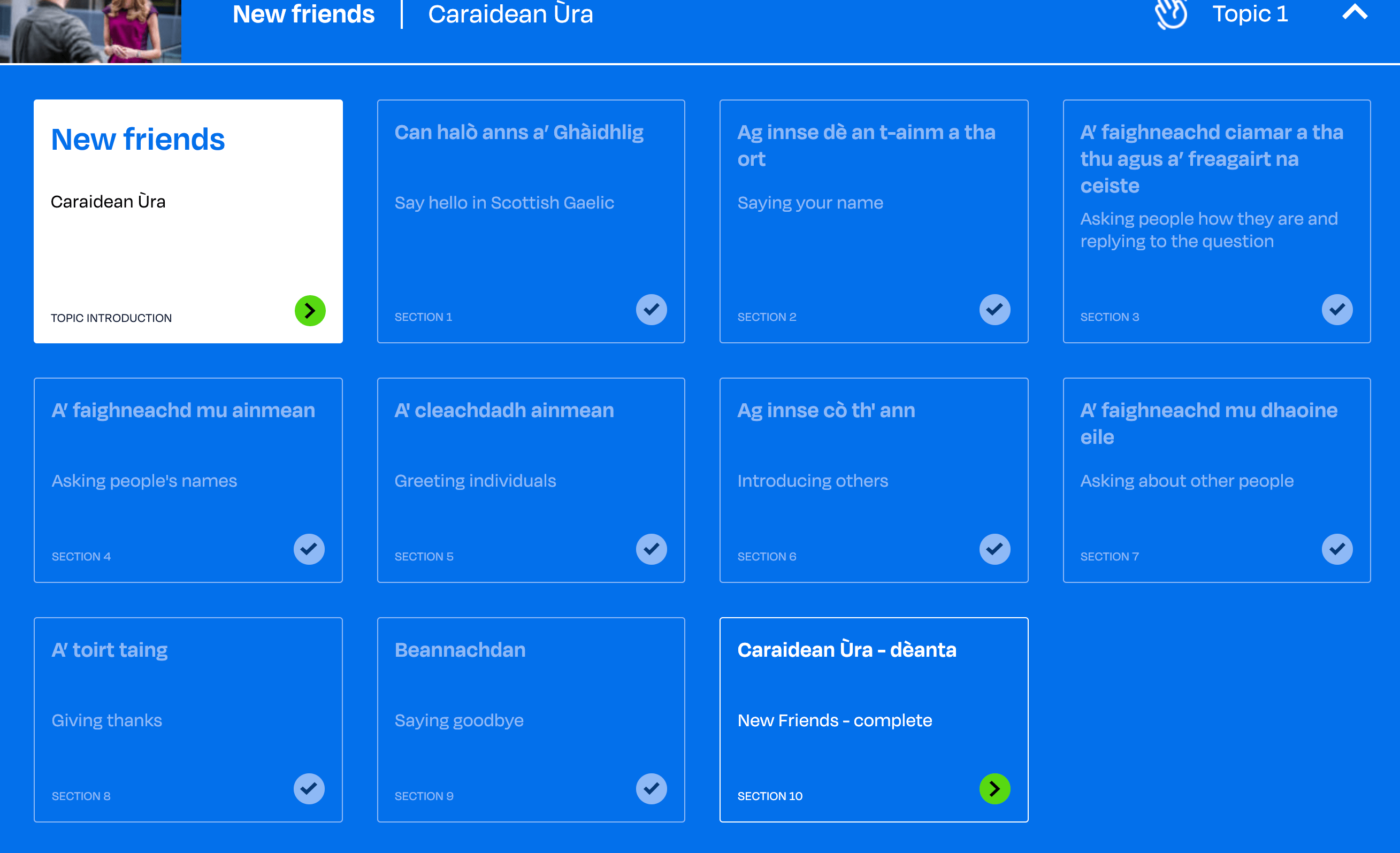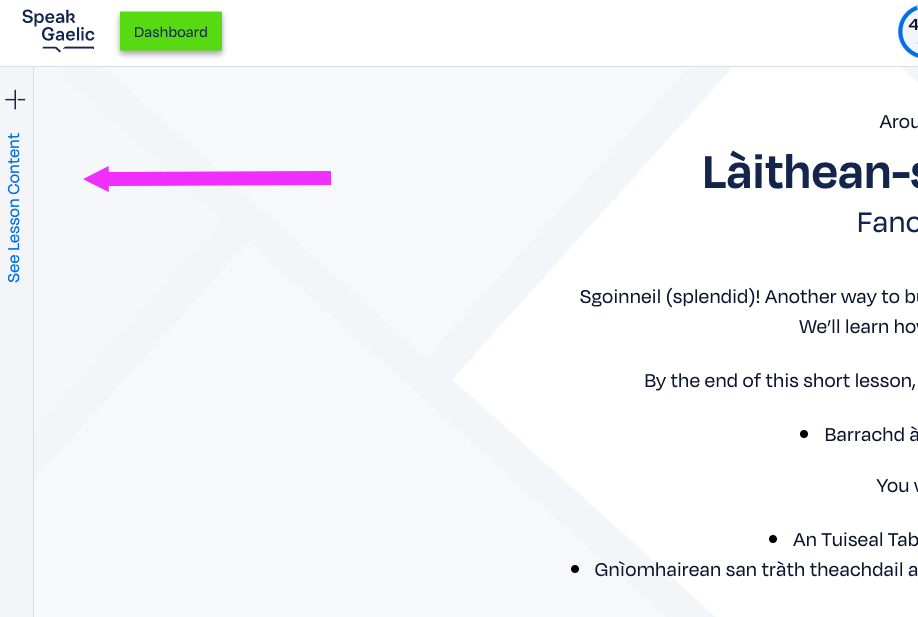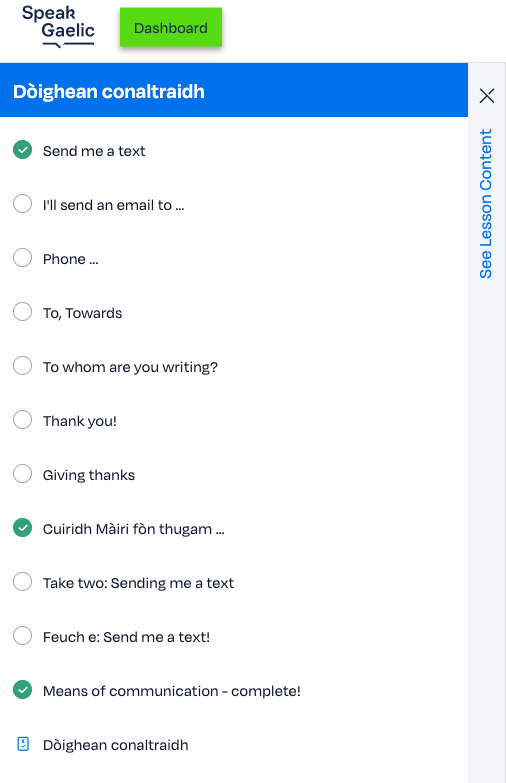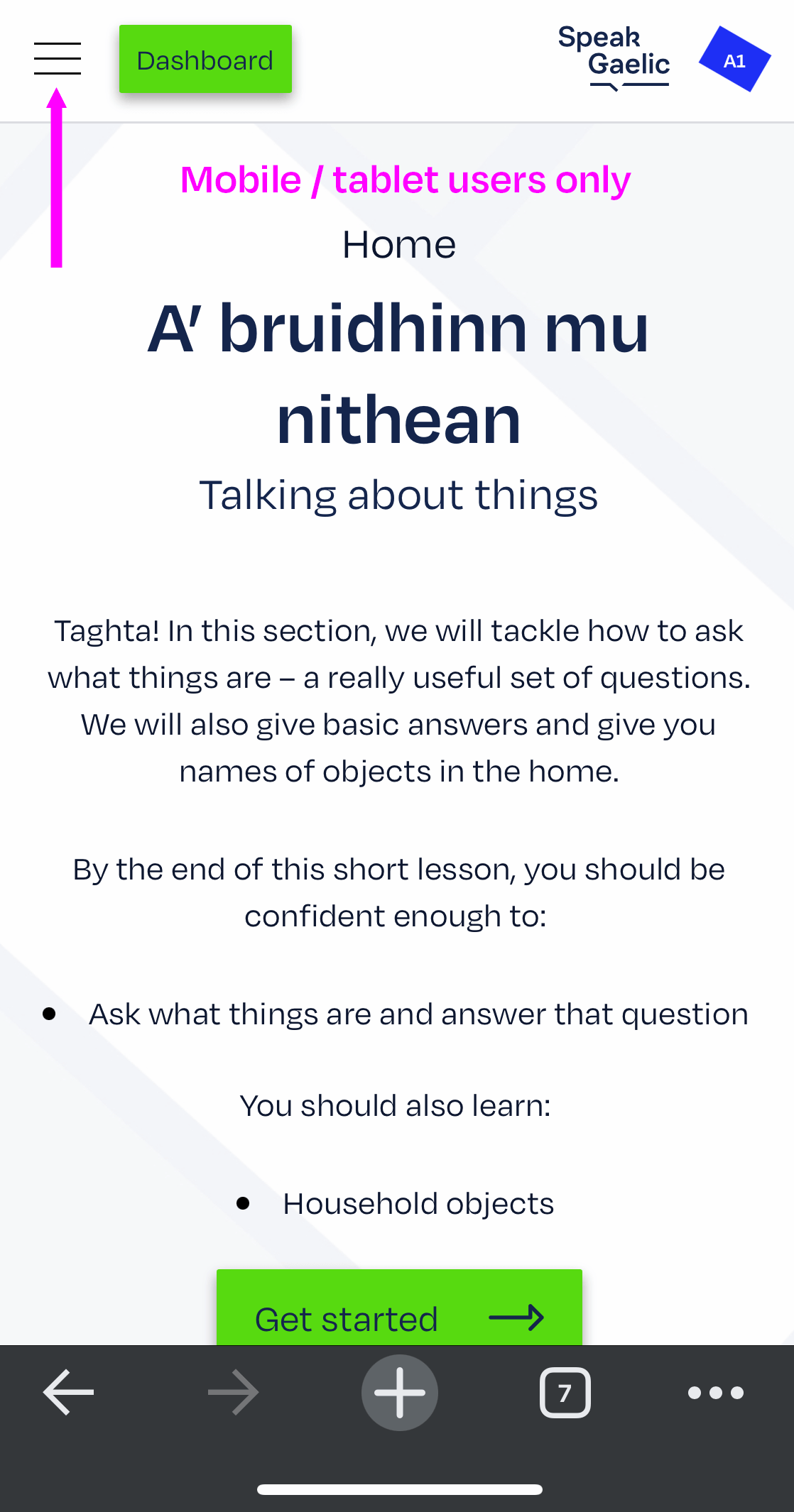Naidheachdan
FAQS
How do I type the Gaelic accents?
You can just copy and paste these
Lowercase letters
Uppercase letters
Keyboard shortcuts
Windows
Some simple ways to type grave accents in MS Windows, depending on which version you use. The grave accent ` is next to the number 1 at top of keyboard
à, è, ì, ò, ù Ctrl+`, release and type letter;
À, È, Ì, Ò, Ù Ctrl+Shift+`, release and type letter
OR
Alt key + character code on the numeric keypad on right of keyboard (laptops will vary). Ensure that the NUMLOCK is on.
à Alt+133 or 0224
è Alt+138 or 0232
ì Alt+141 or 0236
ò Alt+149 or 0242
ù Alt+151 or 0249
À Alt+0192
È Alt+0200
Ì Alt+0204
Ò Alt+0210
Ù Alt+0217
Mac
Push and hold a character to bring up a menu and choose.
E.g. hold the letter e to choose the letter è
What is the Gaelic Alphabet?
> Aa, Bb, Cc, Dd, Ee, Ff, Gg, Hh, Ii, Ll, Mm, Nn, Oo, Pp, Rr, Ss, Tt, Uu
For more information visit LearnGaelic’s Scottish Gaelic Alphabet https://learngaelic.scot/scottish-gaelic-alphabet.jsp
How do I pronounce Gaelic sounds?
SpeakGaelic always gives you a sound file for the word you are learning. For more information on individual sounds, visit LearnGaelic’ Sounds section https://learngaelic.scot/sounds/index.jsp
What are slender and broad vowels?
The slender vowels are e and i.
All the others are broad.
SpeakGaelic says my email is taken and I can’t log in. Can you help?
This is usually because your account has not been properly activated – there should be an email from us with a link to activate your account (remember to check spam / junk folders too). If you can’t find the email, let us know.
If you have already activated your account, you may be on the wrong page. Please ensure you are on the login page and not the registration page.
Can you fix my link SpeakGaelic emailed to activate my account?
Yes – please forward us the email to fios@speakgaelic.scot and ask us to activate your account.
How do I log in after activating my account?
Please make your way to the login page.
Can you help me move on after completing a test?
This commonly happens if you have not logged on. You also need to have passed with 60% correct answers, if you think you have been unfairly treated, let us know. We may have a mistake in that particular test and we will fix it.
My dashboard says I’ve completed X number of topics but I should have more. How do I complete all steps to finish my topics?
You should be able to scroll and expand each topic to see which one has a step missed out. In the following example, all the sections apart from the intro and completed topic section have been completed, so the topic is incomplete.
Go into the incomplete section and follow the all the steps in the section to complete the topic.

How can I see how many steps I have missed out?
You can tell how many steps are in each section by the score on the counter at the top of the page.

How can I see what steps I have missed out?
You can see these by going to the left-hand side of screen of any section and selecting See Lesson Content. Mobile users have an extra fist step, you can see this extra step below.

This will pull out all an index of all the pages and you can see your progress – a completed section will have a big green tick, an incomplete section will be empty. To resolve, navigate to the incomplete pages. If a quiz has not been completed it will be blue. if it is complete, the quiz icon is green.

Extra step for small screens
Mobile users will have an extra step: you have to select the three stacked lines (officially known as the hamburger) beofre the other steps.

How do I report an error?
Either use the contact form or send us an email at fios@speakgaelic.scot. Please send us the page title at the top of page (or URL) with a short description of error. If you can send a screengrab, that will help us identify the issue.
Why isn’t my sound working?
This is usually as something is muted somewhere on your device. Check volume controls, speaker settings and device settings. Please make sure you are pressing the speaker icon.
Why was I marked wrong on this quiz question?
We hate to break it to you, but you might be wrong. Check you have read the question correctly. Please ensure your apostrophes are facing the correct way and finally make sure you don’t have too many spaces.
If you think you have been unfairly treated, let us know. We may have a mistake in that particular test and we will fix it. Either use the contact form or send us an email at fios@speakgaelic.scot. Please send us the quiz title at the top of page (or URL) with a short description of error. If you can send a screengrab, that will help us identify the issue.
Can you translate something for me?
We are a tiny wee team and our main focus is on our resources. There are also professional translators who will talk you through your requirements and provide appropriate translations (some words may be context-dependent). We can send you a list of professional translators if you need them.
I think I’ve found a typo/mistake on the website. How do I report this?
Either use the contact form or send us an email at fios@speakgaelic.scot. Please send us the page title at the top of page (or URL) with a short description of error. If you can send a screengrab, that will help us identify the issue.
Why won't you provide your email address in a format I can open?
We will get ambushed by spam! If you email fios@speakgaelic.scot we will get back to you as soon as possible. Please don’t be mean, we are human beings and it will ruin our day!
Need more help or see something that is not working?
Don’t hesitate to get in touch if you see anything wrong or if you want to leave us a message.
Bilingual transcription: Aithriseadh
Bilingual transcription: Reporting
Watch this clip where Joy gives us some of her useful tips and favourite phrases.
JOY
Dè mu dheidhinn sùil a thoirt air cuid de na dh’ionnsaich sinn gu ruige seo ma–thà.
Let’s look at what we’ve learnt up until this point.
A journalist is a, neach–naidheachd, neach–naidheachd.
A report is an aithris, aithris,
Some people you’ll often hear spoken about in the news include a spokesperson, neach–labhairt, neach–labhairt,
politicians, luchd–poilitigs, luchd–poilitigs
and councillors, comhairlichean, comhairlichean
Words you’ll often hear in political stories are disagreement and controversy, eas–aonta / agus connspaid, eas–aonta agus connspaid.
We learned a good way in which to greet people and get information from them at the same time: What’s your news?
Dè do naidheachd? Dè do naidheachd?
To find out what a particular news story was about it’s:
Cò mu dheidhinn / a bha i? Cò mu dheidhinn a bha i?
And to ask if someone agrees with what’s being said?:
A bheil thu / ag aontachadh? A bheil thu ag aontachadh?
We also heard more impersonal verbs, this time in the context of news:
chunnacas, it was seen, chunnacas
And chualas, it was heard, chualas.